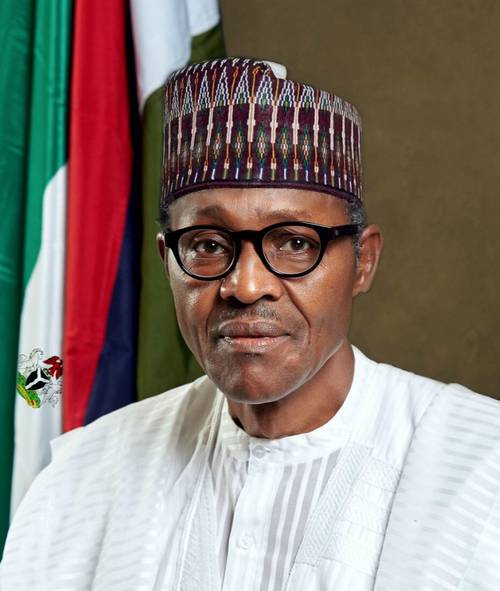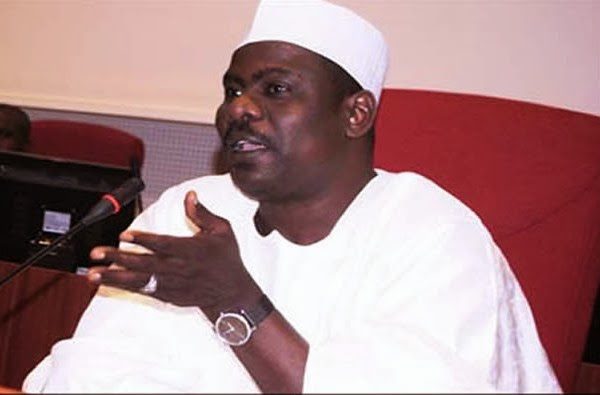National Issues
Harnessing corruption as an unconventional tool for economic development in Nigeria -By Edebhagba Justice


President Muhammadu Buhari
Government sleaze and corruption in high places represent two of the numerous retrogressive leeches that Nigeria has been largely unable to shrug off in her turbulent peregrination to national development. In fact, Nigeria as a country has grown to be notoriously synonymous to corruption, and Nigerians are globally perceived as the figurative cumulonimbus that precedes the thunderstorm of financial crimes wherever they go. This rather unfortunate global perception of my dear country was evidenced when the former British Prime Minister, David Cameron, flippantly referred to Nigeria as a “fantastically corrupt” country; a sentiment which was reflected in Donald Trump’s “shithole countries” remark recently.
To be realistic, corruption is a pandemic phenomenon. Apart from Africa (which is often portrayed as the grand temple of corrupt practices), countries of Asia, Latin America and even the western world continue to struggle with widespread corruption. In Africa, it is estimated that about $148 billion is lost annually through various corrupt practices; the former South African President, Thabo Mbeki’s panel on illicit financial flow (IFF) once put the sum Africa loses annually due to illicit financial flows at a staggering range of $50 billion to $80 billion. If such mind-boggling sums are being siphoned on yearly basis, it is little wonder then that the continent is suffering from such large-scale poverty and under-development.
If Africa is the temple of corruption, then perhaps Nigeria can be aptly referred to as the profane alter. Since 1960 till date, it is estimated that about $500 billion of our collective patrimony grew wings and disappeared to God knows where. Of course, a good chunk of the monies remain firmly locked behind the impenetrable steel of swiss vaults and offshore bank accounts, while the rest have been mummified in graves and suck-aways, left to the nutritional delights of termites and moulds.
Decades of mismanagement and political instability has culminated into a system where corruption has become so deeply entrenched that it is now a norm; the period of sporadic military take-overs and the “oil boom” that splashed the crude gawky soldiers at the helm of affairs with unaccustomed wealth did not help matters either, as it bred a mob of insatiable parvenu who hijacked the corridors of power and turned the country into a cash cow.
Of course, there have been attempts by successive governments (both military and civilian) to fight corruption (even though most of the efforts have majorly been witch-hunting exercises targeted at political rivals), the result of which has been very few high profile convictions and a lot of uncensored comical theatrics. Factors such as judicial technicalities and lack of political willpower have frustrated any serious attempt at keeping corruption at bay. Hence, the question is no longer whether the government is fighting corruption, rather, how is the government fighting corruption?. Over the course of the last 18 years, attempts at nailing high profile corruption cases have been frustrated by endless cycles of litigations and counter-litigations, with nothing to show for it (except maybe richer lawyers and bolder looters). This exposes the fact that the government needs to re-approach the fight against corruption from a more mercurial angle: In 1961, former President of South Korea, Park Chung-Hee, introduced a series of socio-economic reforms that created the modern “Chaebols” and transformed the poor agrarian country into one of the celebrated “Asian tigers”. On seizing power, Chung-Hee was faced with a conundrum, on one hand, the corporate sector was riddled with widespread corruption, and however, on the other hand he needed the industrialists for his ambitious economic policies to work. Chung-Hee’s clever tactic was to reach an agreement with the entrepreneurs under which those accused of financial crimes paid fines to the government and were set free in exchange for their full support for the government’s industrial modernization reforms. This snowballed into a system where the government selected some of the companies, gave them loans and special incentives in exchange for them meeting government export targets, those who met the targets were given more aid, while those who failed got their privileges withdrawn. Today, South Korea has the likes of LG, Samsung, and Hyundai to show for it; big family owned corporations called “chaebols”, which have transformed the country into a developed state.
Nigeria could learn from Chung-Hee’s unconventional model; this can be done by granting corrupt individuals amnesty in exchange for total investment of the stolen funds into the economy. If corruption is as monumental as we have all been led to believe, then it is a fact that should the stolen billions of dollars ever be invested into the Nigerian economy, then we’d experience an industrial revolution within a decade. Government can round-up all documented looters and strike a deal with them that entails them exhuming their loots from the crypts and offshore accounts, and investing it into priority sectors of the economy such as heavy manufacturing industries, education, health care, agriculture and petrochemicals, with assurance that they will be allowed to retain ownership of the industries (though the government would retain shares within the companies). The new industries would be given cheap loans by the CBN, and the governments can even stand as guarantor for them to obtain loans from private banks, along with granting them monopoly priviledges in their respective niches. In exchange for government support, the industries would be obliged to meet government production and export targets, the purpose of this is to build industrial giants that will champion an export driven economic boom. This concept may not be too alien to the Nigerian system, as business-men like Aliko Dangote and Ifeanyi Ubah have been known to enjoy government patronage.
I believe that the government can parlay our corruption problem into national development by thinking outside the box. While the government strengthens the EFCC and other affiliated agencies in preventing new corruption cases, the old “untouchable” cases can be turned into an economic opportunity that will see billions of dollars being willingly repatriated back into the country and invested into the economy, instead of the current system where looted funds are locked up in idle vaults or used to purchase expensive properties abroad which are then left empty.




















